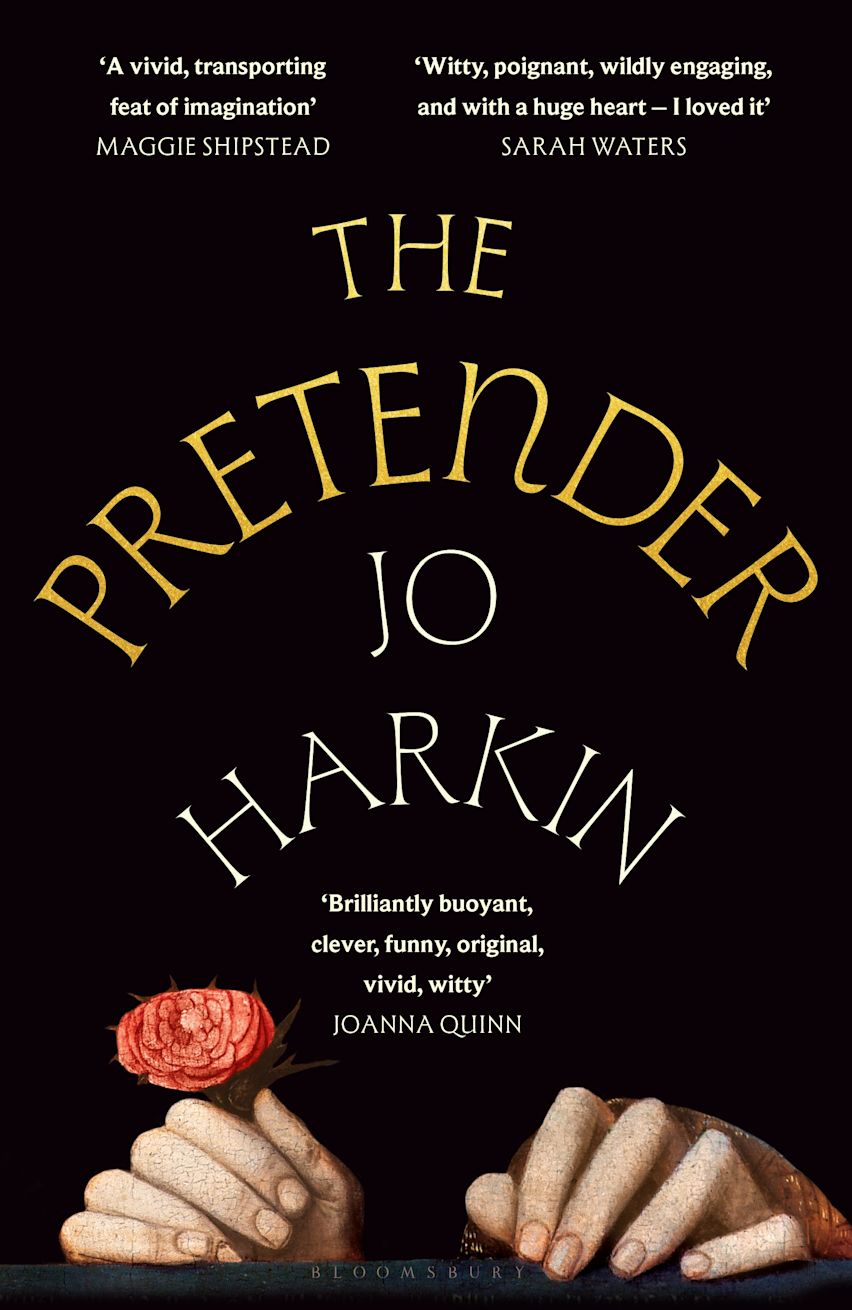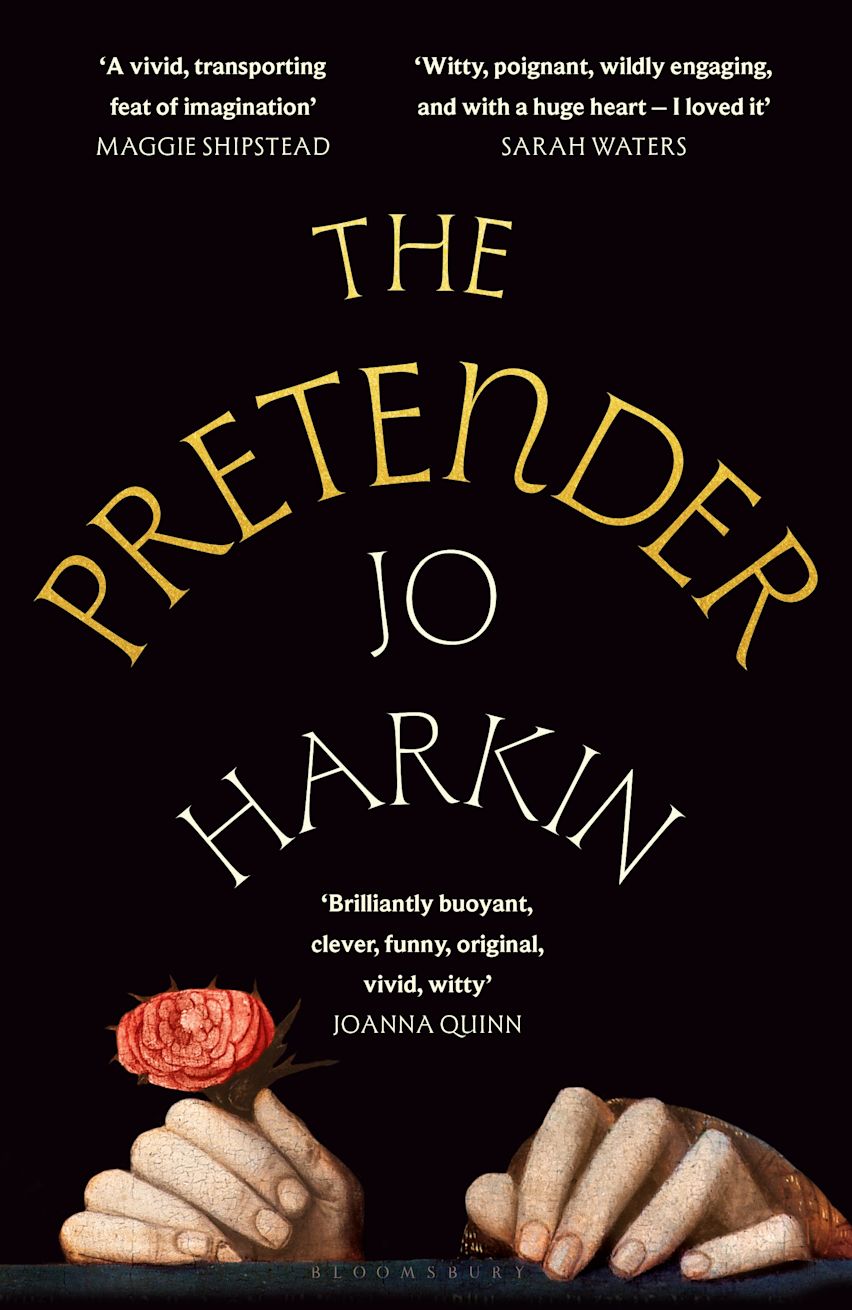Jo Harkin
The Pretender
The Pretender
Couldn't load pickup availability
Sam's review
Four years ago, when my older daughter was eight, we went to The Tower of London. Armed with hours of the brilliant TV show Horrible Histories, she became our tour guide, marching around the halls and corridors telling which king usurped, overthrew, and beheaded who. The story of The Two Princes, locked in the tower by Richard III, was one of her favourites. I’m pretty sure that in reciting this, she told us about Edward Plantagenet, the titular character of Jo Harkin’s second novel, The Pretender. I remember the name at least. It turns out, he had a few.
In the opening chapters we find Edward living under the name John Collan, an Oxfordshire farm boy who spends his days writing verse on how to best his greatest foe, Gaspard the family goat. Life is simple. The recent seizure of the throne by King Richard III, and the various plots to take it back, although they are talked about by John’s neighbours, are of little consequence to John Collan. That is until a nobleman, failing to disguise his nobility, arrives at the farm. A deal is done, and John is whisked away to Oxford, newly informed that he is in fact Edward Plantagenet, 17th Earl of Warwick, son of Isabel Neville and George Plantagenet, Duke of Clarence, nephew of the King and a potential claimant to the throne.
The Pretender follows Edward from his innocent, bucolic existence to the courts of France, Ireland and England, as he is passed from plotter to plotter, educated and groomed for succession, and named variously Simnel, Lambert, Edward and Your Highness. There are a lot of names to keep up with, a lot of switching of allegiances, a lot of history. It could easily become a murky soup of a story or a dry list of who plotted against who, but Harkin has crafted a tale of genuine wit and inventiveness. She deftly and energetically weaves archaic terms into the prose, their context allowing us to understand them, and the main characters are vividly drawn.
Most of all, the book is funny, especially the dialogue and Edward's internal monologue. In the middle third of the story, when Edward is seconded to Ireland, a teenager struggling to become accustomed to both his status and his hormones, I was reminded of The Secret Diary of Adrian Mole: "He wants to ask a priest, but he doesn't want to go to Maister James and hear about what items might be put up him in hell, so he has to wonder on, part excited, part afraid. Hoping - as he brings himself off in the garden robe - that God isn't watching."
His angst-ridden relationship with Joan, the murderous eldest daughter of his Irish host, The Earl of Kildare, is the heart of the book, and comes to define Edward's decisions for the remainder of the story. When Edward is asked to teach Joan some Latin, he's wary of doing so, because "giving Joan more learnings would be like England sending cannon and archers as a gift to the French.” However, Joan quickly persuades him with a bargain, telling him “if you can teach me Latin, I will teach you how to survive. As things stand, you're fucked. I mean, you've got as much chance of getting through your rebellion as a puppy in a bull ring."
It's difficult to combine such passages of quickfire humour with historical detail while avoiding gimmickry. I can't think of many writers who manage it; Ferdia Lennon's Glorious Exploits is perhaps the best recent comparison. And like Lennon, Harkin is clearly a lover of the classics, with Edward quoting Sappho, reading Suetonius and composing Homeric verse about his experiences of love and battle.
Edward spends the duration of the narrative asking if he’s a peasant, an earl, or a bastard. He has no answers and "no-one to answer him - and he wouldn't believe them if they did.”. I could turn to the pages of history (or my 12 year old daughter) to answer his question but, as Edward sadly declares towards the end of the story, “Now I realise only kings write history.” However factually accurate The Pretender may be, it’s a wonderfully entertaining, highly original take on a tumultuous period of English history.
Publisher Review
Wolf Hall meets Demon Copperhead in a sharply ambitious, brilliantly imagined and hugely entertaining story of intrigue, deceit, revenge and ambition
'An absolute delight - Funny, moving, filthy and original - A frontrunner for historical fiction book of the year' The Times
'A vivid, transporting feat of imagination' Maggie Shipstead
'Witty, poignant, wildly engaging, and with a huge heart - I loved it' Sarah Waters
'Brilliantly buoyant, clever, funny, original, vivid, witty' Joanna Quinn
'The Pretender has everything- history richly drawn, amazing characterisation, humour, wit, vigour and bravery' Emma Stonex
'I found myself laughing out loud at the sheer brilliance of Harkin's sentences' Victoria MacKenzie
________________________________________
Kill the pretender. Do not let it be known that there was a pretender to kill.
The year is 1483 and England is in peril. The much-despised Richard III is not long for the throne, and the man who will become Henry VII stands poised to snatch the crown for himself. But for twelve-year-old John Collan, living in a remote village with his widowed father, these matters seem far away.
But history has other plans for John.
Stolen from his family, exiled first to Oxford, then to Burgundy, and then Ireland and apprenticed to a series of unscrupulous political operators, he finds himself groomed for power; not as John Collan, but as Edward Plantagenet, 17th Earl of Warwick and rightful heir to the throne.
Far from home at the Irish court, preparing for a war that will see him become king or die trying, John has just his wits and the slippery counsel of his host's daughter, the unconventional Joan to navigate the choppy waters ahead.
Seething with revenge and machination, sparkling with wit and humanity, and roaring with adventure and bravado, The Pretender is the captivating true story of a young man tossed into the chaos of history as it happens.
'Wickedly funny - A work of genius, a wellspring of laughter and sorrow, a feat of time travel, and a feast of language' Karen Russell
'Raw, beautiful and true ... I loved it' Leah Redmond Chang
'An absolute thumper - Funny and filthy and brave and brilliant' Marianne Levy
'Superb, exhilarating and heartbreaking' Linda Porter
'I couldn't put it down' Tracy Borman
Share


